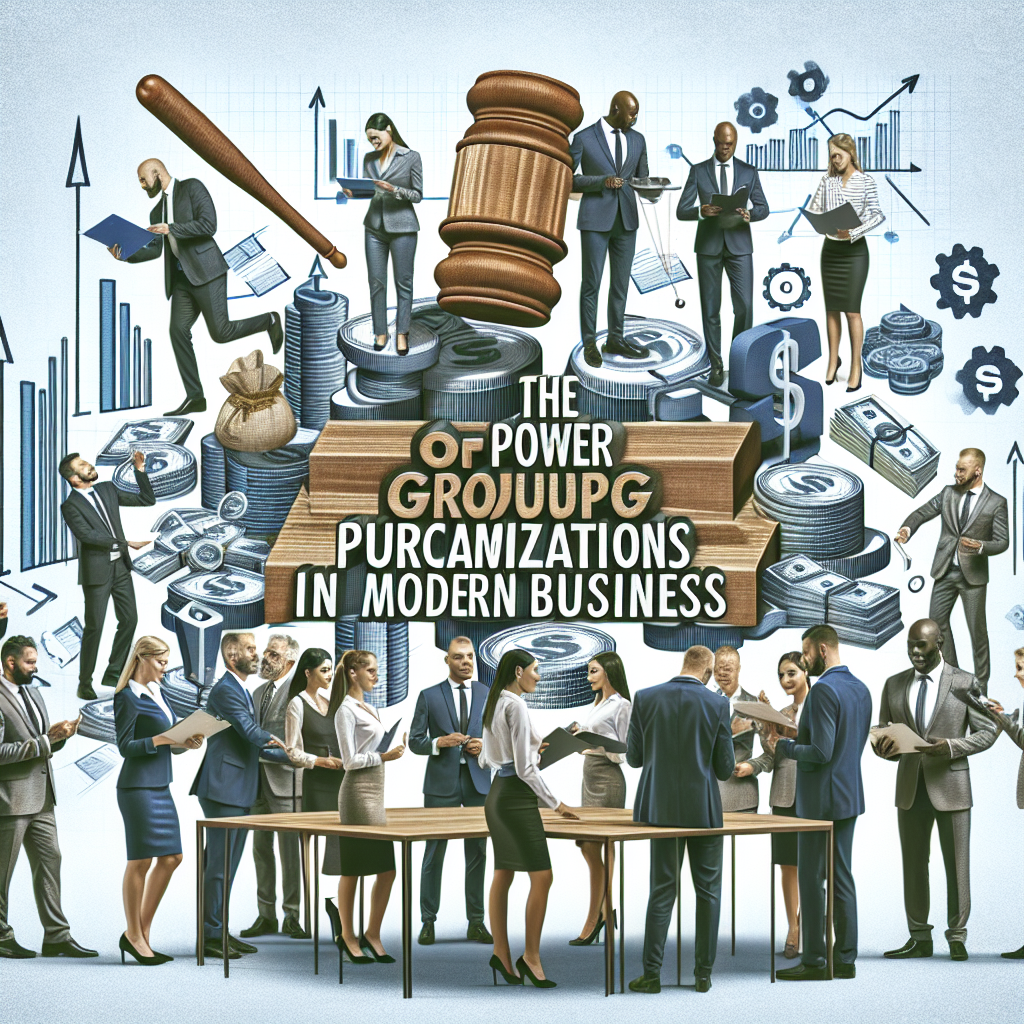Introduction
VCU’s procurement system plays a crucial role in streamlining university supply chain processes. By implementing efficient procurement practices, VCU not only enhances operational effectiveness but also fosters community support and diversity among suppliers. These practices are part of a broader strategy for procurement optimization, which aims to maximize the value derived from every dollar spent.
Key insights include:
- Impact on Local Communities: Efficient procurement practices strengthen local economies by engaging with diverse suppliers.
- Diversity Promotion: A commitment to supplier diversity enriches the marketplace and encourages innovation. This aligns with the current trends in supplier innovation that emphasize the importance of diversity.
What you’ll learn from this article:
- Understanding VCU’s established procurement framework.
- Exploration of various procurement methods utilized at VCU.
- Insights into promoting supplier diversity and leveraging group purchasing for cost savings.
Additionally, we will discuss strategies for maximizing federal grant funding for nonprofits, which could provide useful context for understanding VCU’s financial landscape.
Join us as we delve deeper into how VCU is optimizing its procurement processes to benefit both the university and the community at large. We will also explore ways to boost employee morale with break room supplies, an often overlooked aspect of procurement that can have a significant impact on workplace satisfaction.
Understanding VCU’s Procurement Framework
VCU has established a comprehensive procurement framework designed to streamline purchasing processes while ensuring compliance and efficiency. Here’s how it works:
Key Steps and Stakeholders
- Initiation: The procurement process begins with identifying the need for goods or services.
- Planning: Departments outline their requirements, budget, and timeline.
- Approval: Requests go through necessary approvals from designated stakeholders, including department heads and the procurement office.
Mandatory Sources and Delegated Purchasing Authority
- VCU adheres to specific mandatory sources for purchasing, ensuring that all transactions are compliant with university policies.
- Delegated purchasing authority allows designated staff members to make certain purchases without further approvals, speeding up the process. Adhering to these guidelines is crucial to maintain transparency and accountability within the university.
Contract Purchases and Competitive Bidding Thresholds
Understanding contract purchases is essential. They typically involve:
- Competitive bidding when the expected expenditure exceeds a specific threshold (for example, $100,000). This ensures fair competition among suppliers.
- A practical example: if a department needs to procure new laboratory equipment costing $150,000, they must conduct a competitive bidding process. This includes soliciting bids from various vendors and selecting the most advantageous offer based on cost, quality, and delivery timelines.
These structured steps not only facilitate effective contract management but also enhance the overall procurement experience at VCU. Emphasizing compliance and strategic sourcing lays a solid foundation for future procurement initiatives at the university.
To further optimize procurement processes, the ultimate guide to procurement software solutions provides insights into key features and trends that can enhance efficiency.
Moreover, understanding purchasing groups versus group purchasing organizations can also provide valuable insights into streamlining procurement operations.
Finally, it’s essential to focus on [maximizing supplier performance](https://hubzonedepot.com/uncategorized/maximizing-supplier-performance-how-to-ensure-quality-and-reliability) by ensuring quality and reliability in supplier relationships. For more personalized inquiries or assistance related to VCU’s procurement framework, feel free to contact us.
Diverse Procurement Methods at VCU
VCU employs various procurement methods to ensure efficiency, transparency, and compliance within its supply chain processes. Understanding these methods is essential for all stakeholders involved.
Key Procurement Methods
- Open Bidding: This method promotes competition by inviting bids from multiple suppliers. It ensures that the university receives the best value for its purchases.
- Negotiated Contracts: In certain situations, VCU may opt for negotiated contracts. This approach allows for flexibility in terms and pricing, especially when specific needs arise that cannot be met through standard bidding processes.
Emergency Purchases
In critical situations where immediate action is required, VCU has established procedures for emergency purchases. These include:
- Swift decision-making to address urgent needs.
- Maintaining transparency throughout the process to ensure accountability and trust.
- Documentation requirements need to be fulfilled post-purchase to maintain compliance with university policies. For more insights on building resilience during such crises, refer to this article on procurement in crisis.
Sole-Source Procurements
Certain scenarios may warrant a sole-source procurement, where only one supplier can fulfill a specific need. Determining whether a procurement qualifies as sole-source involves several criteria:
- The product or service must be unique to the supplier.
- Availability of alternatives must be significantly limited.
- Proper documentation is necessary to justify the choice, including detailed explanations of why other options were not viable.
Understanding these diverse procurement methods equips VCU’s stakeholders with the knowledge needed to navigate the complexities of purchasing effectively while adhering to established guidelines. Furthermore, embracing advanced procurement software can significantly streamline these processes.
Continuous Learning in Procurement
The field of procurement is not static; it requires continuous learning and adaptation. Frank Corris’s journey highlights how mastering procurement through learning and strategic thinking can lead to success. His experiences serve as a valuable resource for those looking to enhance their understanding of purchasing.
Communication in Procurement
In addition, it’s crucial to understand certain procurement terms that could hinder effective communication about the value of procurements.
Indirect Spend Management
Lastly, businesses should also be aware of indirect spend, which refers to expenses that are not directly tied to producing a product or service but are still essential for business operations.
Promoting Supplier Diversity through Strategic Initiatives
Fostering Small, Women-owned, and Minority-owned (SWaM) suppliers at VCU is essential for several reasons:
- Social Equity: Supporting SWaM suppliers promotes economic inclusion and creates opportunities for underrepresented groups. This not only encourages a diverse marketplace but also strengthens community ties.
- Marketplace Competition: Engaging diverse suppliers can lead to increased competition, driving innovation and better pricing. A varied supplier base brings fresh perspectives and solutions that benefit all stakeholders involved.
The procurement office plays a crucial role in this initiative:
- Comprehensive Database: VCU maintains a robust database of SWaM businesses accessible to university departments. This resource enables departments to identify and partner with diverse suppliers during the sourcing process, ensuring that these businesses have a fair chance to participate in university contracts.
To further enhance supplier diversity efforts, VCU has established:
- Annual Spending Goals: These targets are designed to ensure that a significant portion of procurement dollars is directed towards SWaM suppliers. Such goals demonstrate the university’s commitment to supporting economic inclusion within its supply chain.
- Monitoring Mechanisms: Regular assessments help track progress toward these spending goals. By analyzing data and outcomes, VCU can adjust strategies as needed and ensure accountability in promoting supplier diversity.
These initiatives illustrate VCU’s dedication to creating an inclusive procurement environment while streamlining university supply chain processes. To achieve this, the university has adopted various effective sourcing strategies that not only focus on supplier diversity but also aim to optimize overall procurement efficiency.
In addition, understanding the difference between strategic sourcing and category management can provide valuable insights for the procurement office. This knowledge can aid in better decision-making when it comes to managing relationships with diverse suppliers through supplier relationship management.
Furthermore, implementing tail spend management practices can help maximize savings by focusing on low-value procurement items. Overall, these strategic initiatives not only promote supplier diversity but also enhance the efficiency of VCU’s supply chain processes.
Leveraging Group Purchasing for Cost Savings and Efficiency Gains
Group purchasing is a powerful strategy that brings multiple organizations, including VCU, together to maximize their buying power when negotiating with suppliers. This collaborative approach creates significant advantages for all participants.
Key Benefits of Group Purchasing:
-
Reduced Unit Prices: By pooling resources, organizations can negotiate lower prices per unit. This translates directly into cost savings on essential supplies and services.
-
Streamlined Administrative Processes: Group purchasing simplifies the procurement process. With standardized procedures, administrative burdens are lessened, allowing staff to focus on other critical tasks. For instance, Hubzone Depot’s strategic solutions can optimize a one-person procurement function for better efficiency.
-
Strategic Partnerships: Engaging in group purchasing fosters relationships between institutions and suppliers. This can lead to better service levels and additional discounts as suppliers recognize the value of long-term partnerships.
-
Enhanced Competitive Edge: Participating in group purchasing arrangements not only drives down costs but also positions universities like VCU as more competitive in the marketplace.
HubZone Depot exemplifies how group purchasing can benefit clients through cost efficiency and strong supplier relationships. With their commitment to supporting clients’ Tier 1 spending goals, they showcase the potential of strategic partnerships within this framework. As universities adopt these practices, they unlock opportunities for both financial savings and improved procurement processes.
Moreover, understanding some common misconceptions about group purchasing organizations (GPOs) is crucial for maximizing their benefits. There are several myths surrounding GPOs that need to be addressed to fully leverage this strategy.
In addition to institutional purchasing strategies, individuals can also learn from the principles of frugal living, which can provide valuable insights into maximizing cost savings in daily life.
Enhancing Client Care and Order Processes at VCU Procurement Office
At VCU, the procurement office prioritizes client care to elevate the entire purchasing experience. Understanding that each department has unique needs, tailored services are essential for maintaining satisfaction and efficiency throughout the procurement cycle. Key elements of this approach include:
-
Personalized Support: Each stakeholder receives dedicated assistance, ensuring their specific requirements are promptly understood and addressed. This commitment helps build strong relationships between the procurement team and university departments.
-
Streamlined Processes: By optimizing order procedures, VCU enhances efficiency. Clear communication channels allow for quick resolution of issues, reducing delays in the supply chain.
-
Feedback Mechanisms: Regular feedback from clients is encouraged. This input informs continuous improvements in service delivery, reinforcing a culture of responsiveness and adaptability.
-
Training Resources: Providing training sessions on procurement processes empowers stakeholders to navigate systems effectively, improving overall customer satisfaction.
The integration of these practices not only fosters a supportive environment but also aligns with VCU’s mission to facilitate seamless transactions that benefit both the university and its suppliers. Additionally, the use of customer service automation tools can further enhance client interactions by providing instant support and resolving queries efficiently.
Educational Programs Supporting Supply Chain Management Careers at VCU
Virginia Commonwealth University (VCU) offers a wide range of supply chain management programs designed to prepare students for successful careers in this dynamic field. The academic offerings include:
-
Bachelor’s Degree in Supply Chain Management: This program emphasizes the integration of theory and practice, equipping students with essential skills in logistics, procurement, and operations management.
-
Master’s Degree in Business Administration with a concentration in Supply Chain Management: This advanced program focuses on strategic decision-making and operational excellence, preparing graduates for leadership roles.
Curriculum Aligned with Industry Needs
Curriculum design is closely aligned with industry needs. Courses are developed in collaboration with industry leaders to ensure relevance and applicability. Students engage in:
- Experiential Learning Opportunities: Internships, case studies, and project-based learning enable students to gain hands-on experience, enhancing their understanding of real-world supply chain challenges.
- Networking Events: These events facilitate connections between students and industry professionals, fostering relationships that can lead to job opportunities.
VCU’s commitment to nurturing talent in supply chain management not only enriches its academic community but also strengthens the university’s role in streamlining university supply chain processes. This includes optimizing supplier management for business success, which is a crucial aspect of supply chain management. The university also emphasizes the importance of transparent supplier communication in building trust and driving business growth. Furthermore, they provide valuable insights on how to succeed with limited resources, which can be beneficial for students entering the competitive job market.
Conclusion: The Future of Sustainable University Procurement Practices
The world of university procurement is changing quickly. Here’s how universities, including VCU, can adjust:
- Embrace Sustainability: Focus on eco-friendly products and suppliers committed to sustainable practices. This approach not only benefits the environment but also aligns with growing student and community expectations.
- Leverage Technology: Implement advanced procurement solutions to enhance efficiency and transparency. Digital tools can streamline processes, making it easier to track spending and supplier diversity.
- Foster Collaboration: Encourage partnerships with local businesses and SWaM suppliers like HubZone Depot. Supporting these enterprises strengthens community ties while promoting economic growth. It’s also essential to follow best practices for procurement to ensure contract compliance.
- Monitor Progress: Set measurable goals for sustainability initiatives and regular assessments to ensure advancement.
By prioritizing these strategies, VCU Procurement can lead the way in shaping future trends in university procurement while balancing economic considerations that benefit everyone involved.





